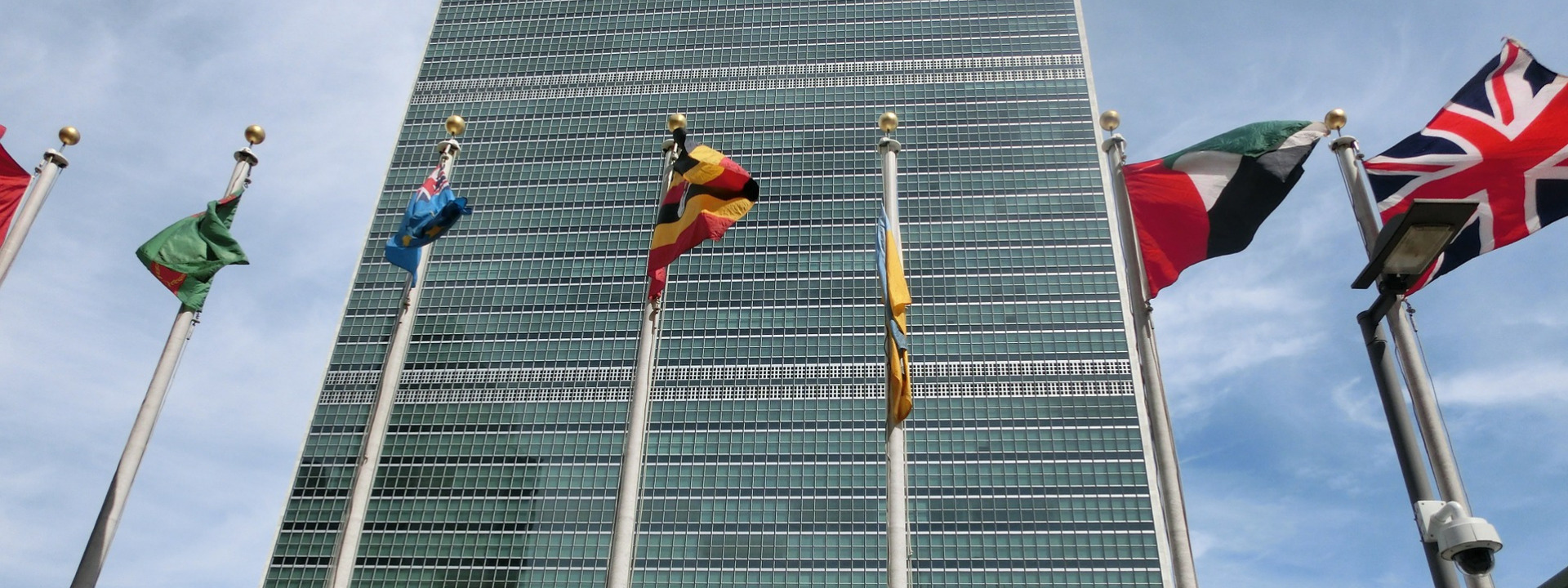
New report – hitting key UN targets ‘impossible’ because of global population growth
Placeholder lead
New report – hitting key UN targets ‘impossible’ because of global population growth
UNDER EMBARGO UNTIL 00.01 ON TUESDAY 7 JULY 2020
Key points:
- Population growth undermines efforts to cut poverty and protect the environment
- UN will today admit key Sustainable Development Goals (SDGs) are not being met
- Campaigners call for universal freedom and rights to choose smaller families
A comprehensive new report will today warn the world faces decades of extreme poverty and environmental destruction unless continued population growth is tackled. The report comes as the UN admits today that many of its 2030 Sustainable Development Goals are set to be missed.
The Hitting the targets report examines the impact of population growth on all of the 17 Sustainable Development Goals. It calls for urgent global action to empower people with the choice of having a smaller family. The report reveals how in several cases, progress towards meeting the goals has been or will soon be cancelled out entirely by population growth, leading to greater numbers of people suffering. Targets affected include: poverty reduction, numbers using polluting fuels, girls’ education, family planning provision and the number of girls facing genital mutilation (see figures below) [i].
Robin Maynard, Director of Population Matters said: “Unsustainable population growth is a leading contributor to the biggest crises facing our planet. It’s clear that without a sustainable global population the UN’s Sustainable Development Goals will not be met, putting both people and planet at risk. Enabling universal voluntary access to modern family planning is a crucial recognition of women’s reproductive rights and will significantly contribute to addressing the environmental and resource crises undermining the wellbeing of people globally.”
The report notes that 37 million more people were undernourished in 2017 than in 2015 and cautions that by the second half of the century humankind will not be able to feed the global population without causing irreversible environmental destruction if current population projections prove correct. It also highlights the impending failure of the international community to achieve its target of delivering safe drinking water to all. Currently around a quarter of the world’s population live in areas facing “extreme water stress”. By 2050, some 5 billion people – more than half the global population – will live in water-stressed regions – i.e. unable to rely on available water supplies to meet their needs.
Hitting the targets also gathers the latest evidence of the role of population growth in driving catastrophic biodiversity loss. One million species currently face extinction, with habitat destruction for resource extraction, infrastructure and food production driven by human population growth being the critical factor.
The report calls for urgent global action to promote the benefits of choosing a smaller family to tackle resource scarcity and to protect the environment. It identifies the critical importance of policies which ensure that everyone is free to make that choice.
Population Matters is calling for additional investment and energy in women’s empowerment, education provision, poverty alleviation and family planning provision.
The campaigners say that in addition to being a fundamental human right, enabling women access to modern family planning is one of the most effective and cost-effective ways of cutting poverty, promoting women’s empowerment and achieving a sustainable global population: Achieving universal access to sexual and reproductive health services by 2030, and eliminating unmet need for modern contraception by 2040 will return $120 for every dollar spent[ii].
The report is launched ahead of World Population Day this Saturday, 11 July and as government representatives gather in New York this week for the High Level Political Forum to discuss progress towards the Sustainable Development Goals.
ENDS
For more information contact:
Alex Pegler
Higginson Strategy
07982 914122
NOTES TO EDITORS:
Population Matters is a UK-based charity which campaigns to achieve a sustainable human population, to protect the natural world and improve people’s lives.
The charity promotes positive, practical, ethical solutions – encouraging smaller families, inspiring people to consume sustainably, and helping us all to live within our planet’s natural limits. It believes everyone should have the freedom and ability to choose a smaller family. It supports human rights, women’s empowerment and global justice.
Population Matters calls for additional investment and energy in existing SDGs with positive population benefits: women’s empowerment (SDG5), education provision (SDG4), poverty alleviation (SDG1) and family planning provision (SDG3).
REFERENCES
[i] Poverty increases: In June 2020, the World Bank forecast that the three countries which between them have a third of the world’s poor – Nigeria, India and the Democratic Republic of Congo – will not grow their economies faster than their populations: in the words of the Bank. UN News, 3 May 2020, https://news.un.org/en/story/2020/05/1063022
Polluting fuel increases: The absolute number of people relying on polluting fuels and technologies for cooking has actually increased, reaching an estimated 3 billion people (https://sustainabledevelopment.un.org/sdg7)
Girl’s education: In sub-Saharan Africa, the number of girls out of secondary school has increased by 7 million due to the region’s population growth. UNICEF, 2020, A new era for girls https://data.unicef.org/resources/a-new-era-for-girls-taking-stock-of-25…
Nos. of slum dwellers: the number of people living in slums has grown: from an estimated 792 million in 2000, to over 1 billion in 2016. UN SDGs report, 2019 https://unstats.un.org/sdgs/report/2019/goal-11/
Female genital mutilation: “The proportion of women and girls subjected to FGM is decreasing overall, but the number of women and girls subjected to it is growing because of population growth. That number could grow from 4.1 million in 2020 to 4.6 million a year by 2030, since the cohort of girls in many high-prevalence countries is growing” UNFP Against My Will State of World Population Report 2020
[ii] Copenhagen Consensus Centre https://www.copenhagenconsensus.com/post-2015-consensus/populationanddem…
